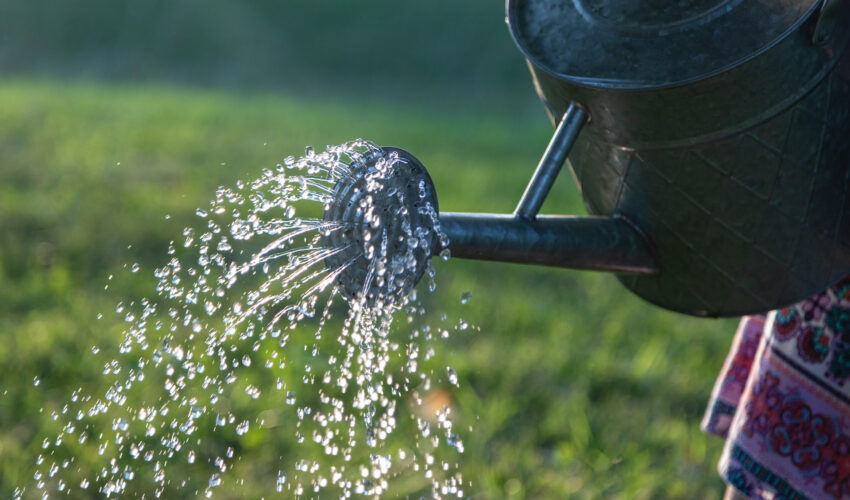If you’re a green thumbed enthusiast, the health of your plants is of the utmost importance—and with San Antonio’s ultra-hard water, you may be concerned that plain tap water is too harsh on your delicate plants. On the other hand, with so many water treatment options available, you may wonder what would be best for plant use. Today, we explore the water options available to you and how they can impact the health of your plants.
What’s Wrong with Hard Water?
Hard water contains elevated levels of minerals, particularly calcium and magnesium. This can have a varying impact on your plants, depending on the plant and degree of water hardness.
Some plants benefit from the additional calcium and magnesium provided by hard water. These hard water minerals can also act as pH buffers, helping to stabilize the pH level of the soil.
However, over time, the accumulation of these minerals can lead to soil compaction. Compacted soil restricts root growth and water movement, potentially impeding plant health and development.
What’s more, as hard water evaporates, it can leave behind mineral deposits on the soil surface, in pots, and on plant leaves. This buildup can hinder water absorption by plants and clog the soil’s pores, leading to poor drainage and reduced oxygen availability for roots.
Can I Use Softened Water on My Plants?
Yes. However, there are some things to keep in mind when using soft water, particularly if you have a sodium chloride water softener. These water softeners use salt pellets to replace the mineral ions in your hard water with sodium ions. The resulting water has a slightly higher sodium content than it did before–and as any plant lover knows, too much salt in a plant’s diet can cause a variety of issues.
However, sodium chloride water softeners aren’t the only option. Potassium chloride water softeners replace the mineral ions with potassium, so the water these softeners produce has no additional sodium content. And since potassium chloride contains potassium, a nutrient known to help plants grow, you may even notice an improvement in the health of your plants.
What’s the Best Water to Use For Your Plants?
Fortunately, when used in moderation, even hard water and sodium chloride softened water won’t do severe damage to your plants. There are a few things you can do to mitigate potential issues:
- Use Rainwater: Collecting rainwater and using it to water your plants is a natural and mineral-rich alternative to tap water. Rainwater typically contains less sodium and is usually close to a neutral pH.
- Consider Filtered Water: Reverse Osmosis systems push hard water through a five-stage filtration system, which captures and removes sediments and impurities from the water. This water is considered healthy for plants and gives you as the plant owner control of what minerals your plants are receiving.
- Add Mineral Supplements: Consider adding mineral supplements to the water or soil to ensure your plants receive the essential nutrients they need.
- Monitor Plant Health: Regularly monitor your plants for signs of nutrient deficiencies, pH imbalances, or other issues. If you notice problems, consider changing your soil and adjusting your watering practices accordingly.
If you’re considering a water softener or want to investigate your water treatment options, give North East Air Conditioning, Heating & Plumbing a call. Our experienced technicians can work with you to find the perfect water treatment method for your household’s needs and lifestyle.
Header photo by David Ballew on Unsplash


